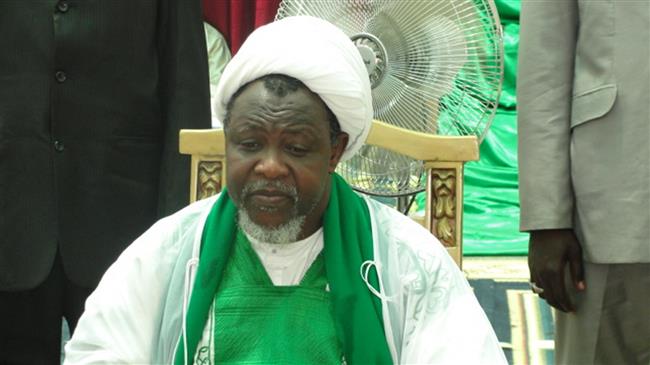
RNA - A member of Islamic Movement in Nigeria said the Nigerian military forces, in cooperation with the country’s government, relocated the cleric to Kaduna on Tuesday morning.
Zakzaky and his wife were brought before the court hall by security forces and they took their seats as the case continued.
An oral application was moved for bail. But the presiding judge asked him to put his application officially in writing.
The case was adjourned to June 21, 2018 and the Sheikh and his wife were consequently returned to Abuja.
In a phone conversation with his son, Mohammad, a few days ago, Zakzaky had said that a representative from Kaduna state court recently served him a summons accusing the cleric of involvement in murder.
The cleric told his son that he rejected the allegations, noting that the government seeks to kill him under pressures from Saudi Arabia.
Zakzaky has been detained without trial for over two years over accusations of inciting public disturbances. His movement has vehemently denied the charges.
Despite the ruling of a Federal High Court, which ordered Zakzaky’s unconditional release in 2016, the Nigerian government has refused to set him free.
According to Press TV, the top cleric lost his left eyesight in a raid which was carried out by the Nigerian army on his residence in the northern town of Zaria in December 2015.
During the raid, Zakzaky’s wife sustained serious wounds too and more than 300 of his followers and three of his sons were killed. Zakzaky, his wife, and a large number of the cleric’s followers have since been in custody.
A judicial inquiry after the 2015 brutal raid concluded that the military had killed 347 IMN members in Zaria. Soldiers buried the bodies in mass graves.
Several international organizations and human rights groups have denounced “the Zaria massacre."
847/940